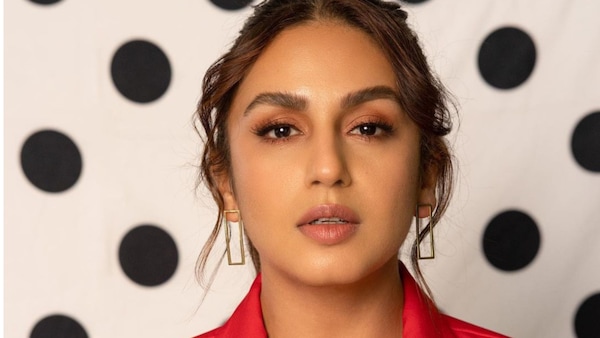Exclusive! Huma Qureshi: Don't call films women-centric,it is not a special mention case or handicapped film
Huma Qureshi, who is making headlines for her bold and quirky avatar in Netflix's Monica, O My Darling, interacted with OTTplay about movies, retro Bollywood and that forbidden term called the 'women-centric' film.

Last Updated: 02.18 AM, Nov 12, 2022
Always honest about her views about the world, actress Huma Qureshi spoke to OTTplay recently about paying homage to Parveen Babbi and Sridevi through her titular character in Monica, O My Darling, reveals she takes pride in being the 'big girl' of Bollywood and explains why a female-dominated film shouldn't be labelled as 'women centric'.
The actress, fresh off the success of her web series Maharani 2 and film Double XL, was recently in New Delhi for an exclusive interview with the media.
Excerpts from our conversation with the star:
Monica is a complex character, and she has shades of gray to her persona. So how do you approach this role? And how do you inculcate that? Did you have any inspirations that you went back to? Like, well, you know, while preparing for the role.
HQ: I approached it just like I approach any role, just read the script, all the all the clues on the motivations, everything is there in the script and talk to your director? And then you know, you try and figure out exactly what he wants? And you know, what interpretation of the character he's seeking. So, approach was pretty much the same to what I would approach any other character.
Not really inspirations, but like, I mean, I mean, we all know, it's sort of like, I mean, there's back in the day, you know, you had actors like Parveen Babi and even Sridevi, how they used to, like, you know, play these kind of characters. So, I wouldn't say inspiration, but it was only an ode to that era. I would say this character is an ode to that era.
Your last film Double XL talked about body-shaming and self acceptance. And now you're playing all these central characters and even in Monica ... your character is unabashedly herself at all times. Do you think that now people have started looking at you as the and not, as you said in the recent past, 'the big girl in Bollywood'? Do you think people are past that now?
HQ: I will always be a big girl in Bollywood. And I'm very proud of it. And I feel like, I don't know. I don't think of it. I think the idea is that one has to just play to the best of your ability and to always be proud of who you are. And to have fun as an actor. You know, and I feel like I would, whether it's Double XL, whether it's Monica, whether it's Maharani ... whether it's any of my work that I'm doing in this I think at this point in time in my life, I just having fun with it. So I'm not thinking or overthinking it, I'm just having fun and just being myself and expressing myself authentically.
So, when it comes to films, these days, some actors—some actresses to be precise—they say that we should not call women-dominated films as 'women centric' because we do not call a two-hero movie 'male centric'. So what's your take on that?
HQ: Yeah, I think I mean, it's correct. No, I mean, it's right, right? You don't call like a hero film a hero-centric let's just call it a film. And I think enough films are being made right now with so many of us and our colleagues. So I think we should just like drop this kind of tagging. It just makes them sound as if it's like special mention case jo nahin hona chahiye. It's not like a handicapped film. Oh, this is like a women on different kind of a thing.

 Premium
Premium